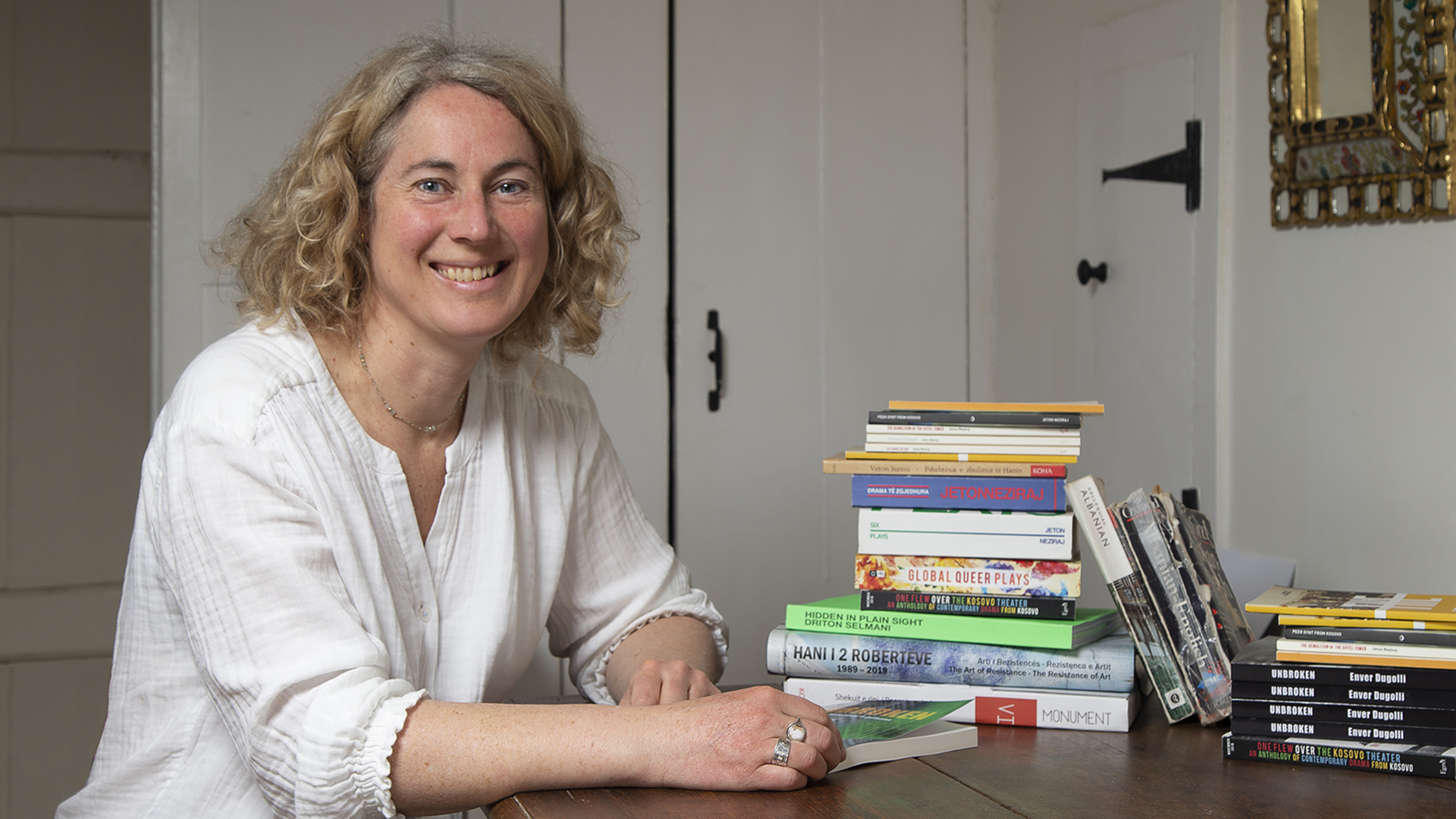
Alexandra Channer: I think of translation as a political activity
British translator of Albanian literature talks Kosovar theater.
|13.04.2022
|
"Literary translation opens up new questions that are relevant for all of us."
Translation is like a jigsaw puzzle.
"I think of what I'm doing as part of a political activity — helping Kosovar authors transmit their ideas to a wider audience."

Lirika Demiri
Lirika Demiri is a former journalist at K2.0. She holds a BA in sociology from the University of Prishtina and an MA in Women's, Gender and Sexuality Studies from The Ohio State University, U.S.
This story was originally written in English.